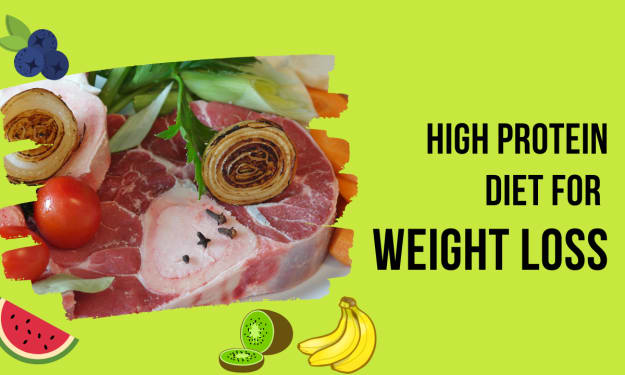Vegetarian diet for weight loss
we will explore the benefits of a vegetarian diet for weight loss and provide tips for those looking to adopt a vegetarian lifestyle.

Losing weight is a popular goal for many people, and there are countless diets and strategies that claim to help achieve this goal. One such approach is a vegetarian diet. A vegetarian diet can be an effective way to lose weight while also promoting a healthy lifestyle. In this article, we will explore the benefits of a vegetarian diet for weight loss and provide tips for those looking to adopt a vegetarian lifestyle.
What is a Vegetarian Diet?
A vegetarian diet is one that excludes meat, poultry, and fish. However, there are different variations of vegetarianism, including:
- Lacto-ovo vegetarianism: This is the most common form of vegetarianism, which includes dairy products and eggs in addition to plant-based foods.
- Lacto-vegetarianism: This type of vegetarianism includes dairy products but excludes eggs.
- Ovo-vegetarianism: This type of vegetarianism includes eggs but excludes dairy products.
- Veganism: Vegans exclude all animal products, including dairy, eggs, and honey.
Vegetarian diets are often rich in whole grains, fruits, vegetables, legumes, and nuts, which provide a variety of essential nutrients.
How Does a Vegetarian Diet Help with Weight Loss?
There are several ways in which a vegetarian diet can aid in weight loss:
1.Lower in Calories
Vegetarian diets are often lower in calories than diets that include meat. This is because plant-based foods are generally lower in calories than animal-based foods. For example, a 100-gram serving of chicken breast contains around 165 calories, while a 100-gram serving of cooked lentils contains around 116 calories. This means that by eating plant-based foods, you can consume fewer calories while still feeling full and satisfied.
2.Higher in Fiber
Vegetarian diets are often higher in fiber than diets that include meat. Fiber is a type of carbohydrate that is not absorbed by the body. It adds bulk to food, which makes you feel full for longer and reduces the overall amount of food you eat. Studies have shown that increasing fiber intake can lead to weight loss.
3.Lowers Risk of Overeating
Vegetarian diets are often high in volume and low in energy density, meaning you can eat a larger volume of food for fewer calories. This can help you feel full and satisfied without consuming excess calories, reducing the risk of overeating.
4.Promotes Healthy Gut Bacteria
Vegetarian diets are often high in fiber, which promotes the growth of healthy gut bacteria. Healthy gut bacteria can help regulate appetite and metabolism, which can aid in weight loss.
5.Reduces Inflammation
Vegetarian diets are often rich in anti-inflammatory foods, such as fruits, vegetables, and whole grains. Chronic inflammation is linked to obesity and other health conditions, so reducing inflammation can aid in weight loss and improve overall health.
Tips for Following a Vegetarian Diet for Weight Loss
If you are considering a vegetarian diet for weight loss, here are some tips to help you get started:
1.Focus on Whole Foods
Instead of relying on processed vegetarian foods, such as veggie burgers or meat substitutes, focus on whole foods, such as fruits, vegetables, whole grains, legumes, and nuts. These foods are nutrient-dense and will help you feel full and satisfied.
2.Incorporate Protein-Rich Foods
It is important to include protein-rich foods in your vegetarian diet, as protein helps you feel full and satisfied. Good sources of protein for vegetarians include beans, lentils, tofu, tempeh, nuts, seeds, and dairy or dairy alternatives.
3.Be Mindful of Portion Sizes
Even healthy foods can contribute to weight gain if consumed in excess. Be mindful of portion sizes and aim to eat until you are comfortably full, but not stuffed. This will help you consume fewer calories and aid in weight loss.
4.Watch Your Intake of Processed Foods
While there are many vegetarian processed foods available, they are often high in calories, salt, and unhealthy fats. Try to limit your intake of these foods and focus on whole, nutrient-dense foods instead.
5.Stay Hydrated
Drinking plenty of water is important for overall health, and it can also aid in weight loss. Aim to drink at least 8 glasses of water per day and avoid sugary drinks, which can contribute to weight gain.
6.Plan Your Meals
Planning your meals ahead of time can help you stay on track with your vegetarian diet and avoid unhealthy temptations. Take the time to plan out your meals for the week and make sure you have healthy, vegetarian options available.
7.Get Creative with Recipes
Eating a vegetarian diet doesn't have to be boring. There are countless vegetarian recipes available online, so get creative and try new recipes to keep your meals interesting and flavorful.
Conclusion
In conclusion, a vegetarian diet can be an effective way to lose weight while also promoting overall health and well-being. By focusing on whole, nutrient-dense foods and being mindful of portion sizes, you can achieve your weight loss goals while still enjoying delicious, satisfying meals. Incorporating protein-rich foods, staying hydrated, and planning your meals ahead of time can also help you stay on track with your vegetarian diet. If you're considering a vegetarian diet for weight loss, speak with your healthcare provider to ensure it is a safe and effective option for you.





Comments
There are no comments for this story
Be the first to respond and start the conversation.